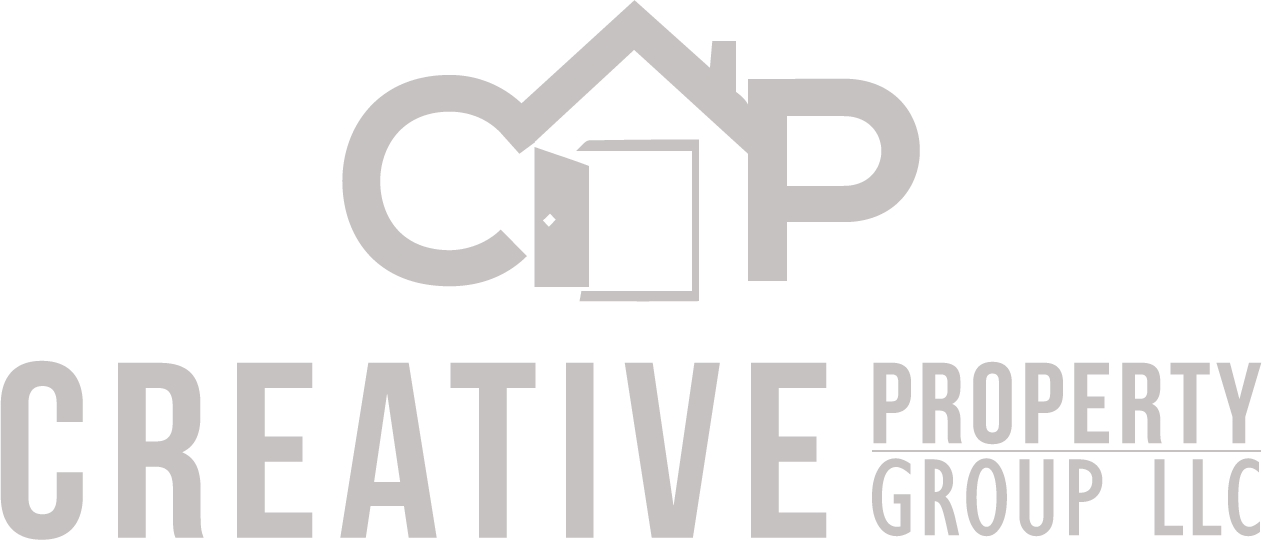Comprehensive Guide to Home Selling

In a dynamic real estate market, understanding the nuances of home selling is paramount. If you don’t do prior research, you’re grappling with a daunting task that leaves you feeling agitated. Worst, your journey might be filled with pitfalls with no idea how to handle unforeseen challenges.
In this article, we’ll walk you through the intricacies of the home-selling process. Starting from the things you need to know before listing your house for sale to diving into the tax implications of selling a home. Whether you’re a first-time home seller or a seasoned pro, our expert insights will set you on the path to a successful sale. So keep on reading.
What is Home Selling and How Does It Work?
Home selling is the process of transferring ownership of a residential property from a seller to a buyer. It involves various steps and considerations. The process can vary depending on factors such as local real estate laws, market conditions, and the preferences of the buyer and seller.
But typically, it begins with the decision by homeowners to sell their property. They can either list it independently or work with real estate agents. Whatever method they choose, the sellers need to prepare the home. This step is necessary to make the house attractive to potential buyers. Then, they need to set a price and market the property for quick selling.
While the house is listed, they will receive various offers. The more offers they receive, the better. Many offers allow them to choose what’s best and is aligned with their needs. The goal is to find a qualified buyer willing to purchase the property at an agreeable sale price.
However, not every listing will result in numerous offers. Sometimes, they also need to negotiate with low offers. So if you’re a first-time seller, this is something you need to prepare yourself. Don’t worry because we’ll give you tips on how to negotiate correctly.
When both the seller and buyer agree, they both need to complete the necessary legal and financial transactions to finalize the sale. Based on the date they agreed on, the seller needs to vacate the house before the new owner comes in.
What Are the Benefits of An Effective Home Selling Process?

Effective home selling process transcends mere transactions. It evolves into a holistic and strategic endeavor that orchestrates a seamless transfer of ownership. Here are some of its benefits:
Maximizing Returns
An effective home selling process can strategically maximize the financial returns for the sellers. This involves setting the right asking price and negotiating skillfully. Also, they can leverage market trends to ensure a favorable outcome.
Mitigating Risks
A well-executed home selling process includes attention to legal and financial details. Thus, it reduces the risk of disputes or complications after the sale. It also ensures that contracts are drafted properly and in adherence to regulations. Doing so can contribute to a secure transaction.
Maintaining Property Values
An effective home selling process involves careful consideration of curb appeal, pricing, upgrades, marketing, timely sales, transparency, and community engagement. Homeowners’ approach should focus on these factors. These will help them enhance the value of their individual property.
What Are The Things You Need to Know Before Listing Your House?
Before sellers list their homes for sale, there are crucial factors to consider. Understanding these will ensure a successful and rewarding house selling experience.
Market Conditions
Market conditions influence your selling strategy. So understanding it is crucial. You need to know if it’s a buyer’s or seller’s market. High demand can result in a quicker real estate transaction. However, if it’s a buyer’s market, you may require strategic pricing and marketing.
Property Value
The next thing is you need to determine your home’s value. A competitive price attracts prospective buyers. You can conduct a comparative market analysis (CMA). This will help you set an appealing listing price. A realistic price attracts a pool of buyers, increasing the chances of a quicker sale.
Legal Obligations
Before listing, familiarize yourself with legal obligations. Consult a real estate attorney to ensure compliance with local regulations. This step avoids potential issues during the transaction process.
Marketing Plan
A robust marketing plan is essential. Leverage real estate websites, online listings, and social media to maximize your property’s visibility. Online presence helps you reach a broad audience to attract active buyers.
Read also: Unlock Profit: Sell My House Fast for Cash – Homeowner’s Guide
Timeline and Contingencies
Know the timeline for your sale. You also need to plan for contingencies. As mentioned above, not every listing results in a quick sale. It is better if you consult real estate advisors or real estate brokers. Their knowledge and expertise will help you understand the potential challenges, allowing you to navigate the entire process smoothly.
Closing Costs
Familiarize yourself with closing costs to avoid surprises. If you’re a newbie, better to consult with a real estate attorney or real estate advisor. Some of the closing costs in real estate include insurance, valuation, lawyer’s fees, property tax, and home insurance. Understanding these expenses ensures a transparent and well-managed closing process.
Paperwork and Documentation
Before you list your property for sale, gather all necessary paperwork and documentation in advance. Doing so will eliminate the stress of last-minute preparation. On top of that, it will streamline the process, providing a smooth experience for both parties.
Emotional Preparedness
Lastly, emotional preparedness is crucial. Selling a home can be emotionally charged. So you need emotional and mental readiness for the journey. Keep in mind the exciting prospect of a successful sale and a new chapter.
How to Increase Your Home’s Value?

When gearing up to sell your home, you want to get the best possible return on investment. That’s why you need strategic enhancements that appeal to potential buyers. Let’s explore various tips to increase your home’s value effectively:
Curb Appeal
Curb appeal plays a crucial role. The exterior of your home is the initial glimpse potential buyers will have. Ensure your lawn is well-maintained. You can also add potted plants for a touch of color. Also, a fresh coat of paint for the front door creates an inviting entryway.
Landscaping
Well-designed landscaping enhances aesthetic appeal and increases your selling price. Invest in well-placed trees and shrubs as well as maintain a lush lawn. Consider adding outdoor lighting to showcase your landscaping even during the evening.
Repairs and Improvements
Prioritize both interior and exterior repairs to present a well-maintained home. Attend to leaky faucets, peeling paint, or damaged roofing. A home in good repair reflects care and attention to detail. All the repairs and improvements will positively impact your property’s value.
Read Also: What Not to Fix When Selling A House?
Kitchen Upgrades
Kitchens often sway cash buyers. Consider modest upgrades like replacing outdated hardware, installing new countertops, or updating appliances. These changes can give your kitchen a fresh, modern look without breaking the bank.
Bathroom Renovations
Bathrooms are also key selling points. Opt for a clean and modern aesthetic by replacing old fixtures. You can also invest in re-grouting tiles or in a new vanity cabinet. A spa-like bathroom can significantly increase your home’s appeal.
Energy Efficiency and Smart Home Technology
Modern buyers appreciate energy efficiency and smart home features. Invest in energy-efficient appliances, windows, and insulation. Additionally, consider incorporating smart thermostats, water heaters, lighting, and security systems for added appeal.
Flooring Updates
Flooring sets the tone for each room. Consider updating worn-out carpets or dated tiles. Hardwood floors are a timeless option that often adds considerable value to a home.
Fresh Paint
A fresh coat of paint is one of the most cost-effective ways to increase your home’s value. This also puts your property in pristine condition. Stick to neutral colors that appeal to a broader range of tastes. This provides potential buyers with a blank slate to envision their own style.
Storage Solutions
Ample storage is another significant selling point. Declutter your home and remove personal items such as family photos and sports memorabilia. You can also invest in clever storage solutions to showcase the available space. This can include built-in shelves, under-stair storage, or closet organizers.
Minor Renovations
Minor renovations can have a major impact on sales prices. Consider updating light fixtures, door handles, or cabinet hardware. Small changes contribute to an overall refreshed look and feel.
How to Market Your Home for Effective Selling?
Mastering the art of marketing is key to ensuring a successful and efficient sale. Creative Property Group is here to guide you through effective marketing strategies. Our tips will maximize your home’s visibility and attract potential buyers:
Online Listings
In today’s digital age, online listings are a cornerstone of effective home marketing. Ensure your property is listed on reputable real estate websites. Also, optimizing your listing helps your marketing effort. Provide detailed information, high-quality photos, and a compelling description. Utilize platforms that reach a broad audience to increase your home’s online appeal.
Social Media Marketing
Leverage the power of social media to extend your home’s reach. Share professional photos and engaging content across platforms like Instagram, Facebook, TikTok, and YouTube. Utilize relevant hashtags and encourage your network to share your posts to broaden your home’s online presence.
Email Marketing
Craft a targeted email marketing campaign to reach potential buyers directly. Share visually appealing newsletters with highlights of your home and relevant market insights. You can also use emails to invite potential buyers to your upcoming open houses. Building a mailing list allows for personalized communication. It keeps your property top-of-mind for prospective buyers.
Virtual Tours
Bring your home to life through immersive virtual tours. These digital walkthroughs provide potential buyers with in-depth knowledge about the square footage of your home. You can also showcase the layout and features of your property’s living spaces. Ensure the virtual tour is well-lit, professionally filmed, and highlights the most enticing aspects of your home.
Professional Photography and Staging
First impressions matter. Investing in professional photography allows you to have excellent photos for print materials and online listings. Also, professional home staging helps you showcase your home’s best features. It can also highlight the unique aspects of your property.
Showings and Open Houses
Conducting effective showings and open houses is crucial. Create a welcoming atmosphere by decluttering. Maximize natural light and add thoughtful touches to create a homey feel. During open houses, engage with visitors. Make sure to highlight your home’s unique features and provide informative brochures for them to take away.
Real Estate Agent Network
Choosing the right real estate broker is paramount. An experienced agent with a solid record of closing deals understands the market dynamics. This allows you to position your property effectively for a quick and lucrative sale.
Read also: How Can Realtors Help You Sell Your Home?
However, if you choose the FSBO (Sale by Owner) method, prepare for negotiations. Having good negotiation skills helps you secure the best deal. Understand your bottom line and be open to compromises on non-essential points.
How to Negotiate with Low Offers?

As mentioned above, home selling sometimes includes negotiating with low offers. It requires a strategic and level-headed approach. Here are our pro tips to turn challenging negotiations into successful deals:
Stay Calm and Objective
The first thing you need to do is to maintain your composure during negotiations. Staying calm and objective allows you to think rationally. It also helps you make informed decisions. Emotions can cloud judgment, so approach the negotiation table with a clear mind.
Understand the Buyer’s Perspective
Empathy is a powerful tool in negotiation. Understanding the buyer’s perspective helps you tailor your responses to their concerns. Recognize their motivations and address their needs where possible. Doing so fosters a more collaborative atmosphere.
Evaluate Market Conditions
Knowledge is your greatest ally. Evaluating market conditions provides context for the offer. If the market is favoring buyers, adjustments for the list price may be necessary. Conversely, in a seller’s market, you have a great deal of time holding on to your listing price.
Respond Professionally
Remember that professionalism is non-negotiable. Make sure to always respond professionally to set a positive tone for negotiations. Clearly articulate your position. Then, emphasize your commitment to a fair and mutually beneficial deal.
Counteroffer Strategically
Crafting a strategic counteroffer is an art. Do it by presenting a well-reasoned response. Justify your counteroffer with market data and property features. Mention recent upgrades that add value to your home.
Highlight Your Property’s Value
Highlighting your property’s value reinforces why it’s worth the listed price, even for a short sale and foreclosure. Showcase its unique selling points such as features, pristine condition, entertaining spaces, and floor plans. Mention the total square footage of your property. You can also present the certificate of pre-sale home inspection to potential buyers. This will assure them that your property for sale is in great shape.
Offer Incentives
Sometimes, sweetening the deal can bridge the gap. Offer incentives such as covering closing costs, including furniture, or providing a home warranty. These gestures can make your offer more appealing without compromising your bottom line.
How to Handle Multiple Offers?
Receiving multiple offers on your property is both exciting and challenging. You may wonder which is the best to choose. Here are our essential tips to ensure you make informed decisions. These will also help you secure the best deal when faced with numerous offers
Notify All Interested Parties
First, notify all interested parties about the existence of multiple offers. This allows you to set clear expectations. Transparency from the start fosters a fair and open process. It will encourage buyers to submit their best offers.
Establish A Deadline
Time management is crucial in a multiple-offer scenario. Establishing a deadline for receiving and reviewing offers creates a structured and efficient process. This deadline ensures that all potential buyers have an equal opportunity to participate in the bidding process.
Review Each Offer
Thoroughly review each offer. Examine not only the purchase price but also the terms, contingencies, and proposed closing dates. This comprehensive evaluation allows you to consider the entire package each buyer brings to the table.
Consider Contingencies
While a high offer is attractive, considering contingencies is equally important. Evaluate the conditions attached to each offer. A strong offer aligns with your preferences and minimizes potential hurdles.
Assess Buyers’ Financial Strength
Understanding the buyers’ financial strength is also crucial. Evaluate their ability to secure financing or provide an all-cash offer. A financially stable buyer enhances the likelihood of a smooth and successful transaction.
Counteroffers
Don’t shy away from counteroffers. If none of the initial offers meets your expectations, consider counteroffering to encourage improved terms. Skilled negotiation at this stage can lead to a more favorable deal.
Evaluate Terms Beyond Price
Look beyond the purchase price. Consider additional terms such as the proposed closing date, earnest money deposit, and flexibility on move-in dates. A holistic evaluation ensures that the offer aligns with your overall objectives.
Backup Offers
While you may have a primary choice, consider backup offers. This safeguards your position in case the primary deal falls through. It keeps the momentum of the selling process. This also ensures you have alternatives in place.
What Are The Necessary Documentation Involved in Home Selling?
Selling a home involves more than just listing it on the market. Understanding the essential documentation is key to a smooth and successful home selling process. This is beneficial, especially if you opt not to work with the real estate business. We compiled the necessary paperwork to help you get started:
Listing Agreement
A listing agreement is a contractual arrangement between the seller and the real estate brokerage. This document outlines the terms and conditions of the agent’s representation. It includes the agreed-upon commission and the duration of the listing. The marketing strategies to implement are also in the document. Its importance lies in formalizing your partnership and setting expectations for a successful collaboration.
Property Disclosures
Property disclosures are documents where the seller discloses any known issues or defects with the property. This transparency is crucial as it helps potential buyers make informed decisions. Failure to provide accurate disclosures can lead to legal complications down the line.
Purchase Agreement (Sales Contract)
The purchase agreement is the formal agreement between the seller and the buyer. It outlines the terms and conditions of the sale. The sales contract includes the purchase price, closing date, and any contingencies. This document serves as the roadmap for the entire transaction. It also ensures that both parties are on the same page regarding the terms of the deal.
Title and Ownership Documents
Title and ownership documents establish your legal right to sell the property. These include the deed and any relevant title certificates. Ensuring the accuracy of these documents is vital to a smooth closing process. Any discrepancies can delay or jeopardize the sale.
Home Inspection Reports
Home inspection reports provide a detailed assessment of the property’s condition. This is not a mandatory document in home selling. However, a thorough home inspection report can instill confidence in potential buyers.
Appraisal Report
A professional appraiser conducts an appraisal report. This is necessary to determine the fair market value of the property. Lenders often require this document for the purchase price to align with the property’s true value. It plays a crucial role in securing financing for the buyer.
Is It Better to Work with Realtors for Home Selling?

Definitely! Collaborating with experienced real estate professionals brings a wealth of knowledge to the table. Realtors are well-versed in market dynamics and legalities involved in home selling. They will provide you with invaluable guidance throughout the home selling process. Their expertise ensures your property is positioned effectively in the market.
Also, they have access to up-to-date data, including the latest NAR data (National Association of Realtors). This information allows them to analyze market trends, determine reasonable prices, and identify potential challenges. Utilizing these insights, they strategically market your property to attract the right buyers.
Lastly, you can take advantage of their negotiation skills. Negotiating the best terms for your sale is a critical aspect of the process. Realtors, with their honed negotiation skills, work on your behalf to secure favorable deals. From handling offers to navigating contingencies, their expertise ensures a smooth negotiation process.
Is it Hard to Sell Your House Without A Realtor?
While selling your house without a realtor is possible, it comes with its challenges. Without a realtor, your market knowledge may not be enough to position your property competitively. Also, selling without a realtor means shouldering the responsibility of understanding and managing these legal aspects.
You may also miss out on targeted marketing efforts that your property needs to have.
Another disadvantage is being in charge of the negotiation process. If you lack negotiation skills, you may encounter challenges that can impact the outcome.
Lastly, selling a home demands time and effort. All the responsibilities fall squarely on your shoulders. It requires significant dedication and organization. If you are not willing to invest your time and effort, you will not get the best offer.
How Do I Ensure a Smooth Home Selling Closing Process?
Ensuring a smooth closing process is paramount. There are essential steps you need to follow to guarantee a seamless transition from listing to closing.
Initiate the closing process by preparing early. Gather all necessary documents, including the property deed, survey, and any relevant permits. Completing a pre-sale home inspection before the listing can preemptively address potential issues.
Next, engage with knowledgeable real estate attorneys. They will help you navigate the legal intricacies. They can also assist you in reviewing contracts. If there are issues that may arise during the process, they can safeguard your interests.
Also, the closing process often involves an escrow process. This is where a neutral third party holds funds and documents until the transaction is complete. Familiarize yourself with this arrangement. Prepare yourself as well to fulfill any conditions outlined in the escrow instructions.
If your buyer is obtaining financing, maintaining open communication with their mortgage lender is vital. Ensure that they have all necessary documentation. You also know if they are progressing toward loan approval to avoid delays in the closing process.
Another tip is to respond promptly to any requests from your realtor, the buyer, or their representatives. Timely cooperation can prevent unnecessary delays and keep the process on track.
Lastly, understanding your closing costs is crucial. These may include fees for title searches, attorney services, and recording fees. Being aware of these expenses helps you plan accordingly and avoids surprises on closing day.
What Do I Need to Do After A Successful Home Selling Process?
Congratulations on a successful home selling process! As you transition to the next phase, there are several important steps to ensure a smooth and organized post-sale experience.
Notify Utility Companies
Contact utility companies to transfer or cancel services. This includes electricity, water, gas, internet, and any other utilities associated with the property. Doing this will ensure a smooth transition and avoid unnecessary bills.
Update Your Address
Inform relevant parties about your change of address. Update your information with the post office, banks, and credit card companies. Inform as well other institutions where you receive mail. This lets you continue to receive important correspondence in the future.
Close Out Escrow Account
If an escrow account was established during the sale, see to it that it is properly closed. Work with your real estate attorney or the escrow company to complete this process.
Organize Closing Documents
Gather and organize all the documents related to the home sale. This includes the closing statement, deed, inspection reports, and any warranties. Keep these documents in a secure and easily accessible location.
Settle Outstanding Bills
Address any outstanding bills associated with the property. This may include property taxes and homeowners association (HOA) fees. Pay other outstanding debts related to the home before you move out.
Plan for Capital Gains Tax
If applicable, plan for potential capital gains tax implications. Consult with a tax professional to understand your tax obligations. It is also best to explore any available exemptions or deferral strategies.
Evaluate Your Next Move
Consider your living arrangements after the sale. Are you moving to a new home or renting? Having a clear plan for your next move is essential.
Financial Planning
Review your financial goals. Consider how the proceeds from the home sale align with your broader financial plan. This may involve saving, investing, or allocating funds for future property purchases.
Express Gratitude
If you worked with a realtor, express your gratitude for their assistance throughout the home selling process. A thank-you note or a positive review can go a long way in maintaining positive relationships.
What Are The Tax Implications of Selling A Home?
Selling a home involves various financial considerations. Understanding the tax implications is crucial for a well-informed and financially savvy transaction. Here are key aspects to consider:
Capital Gains Tax
One of the primary tax considerations is the potential for capital gains tax. If the profit from selling your home exceeds the allowable exclusion amount, you may be subject to capital gains tax. However, the Internal Revenue Service (IRS) provides a significant benefit for homeowners.
First $250,000 of profit is tax-free for singles. A married couple filing jointly can exclude up to $500,000 in capital gains. But you can only enjoy this benefit if you sell your primary residence. Plus, the exemption is only valid every two years. You must have owned and used the property as your main residence for at least two out of the five years preceding the sale to qualify for the full exclusion.
Also, the length of time you’ve owned and lived in the home can impact the amount of capital gains exclusion. If you sell your home within a year of ownership, the short-term capital gains are subject to taxation at the ordinary income rate. The capital gains tax can potentially reach as high as 37%.
On the other hand, properties held for more than a year incur long-term capital gains. Those are subject to taxation at rates of 0 percent. It can range from 15% to 20% depending on your income tax bracket.
Exceptions to Exclusion
Certain situations, such as unforeseen circumstances might qualify you for a partial exclusion. Those can be a change in employment, health issues, or other specified reasons. These situations can partially exclude you from paying tax even if you don’t meet the standard ownership and use requirements.
1031 Exchange
A 1031 exchange is a tax-deferred exchange that allows real estate investors to sell a property and reinvest the proceeds into a new property. The key feature of a 1031 exchange is its ability to defer capital gains taxes. It is a powerful strategy to potentially increase their investment portfolio. However, they can only enjoy it if they meet IRS rules.
State and Local Taxes
Keep in mind that state and local jurisdictions may have additional tax implications. So, it is important to do some research. Understand the tax laws in your specific location to achieve full compliance.
Wrapping Up
Navigating the intricate landscape of home selling demands strategic insights and a comprehensive approach. Throughout our comprehensive guide, we’ve unraveled the complexities of selling a house. We empower you with knowledge and guidance tailored for first-time sellers and seasoned homeowners alike.
By prioritizing key elements such as understanding market conditions will allow you to get the best deal for your property. Leveraging the expertise of reputable realtors will also maximize returns on your investment.
As you reflect on the insights gained, consider the immense potential of a successful home selling process. That it’s not merely a transaction. It is a transformative step toward realizing your financial goals. Selling a house allows you to embark on new opportunities.
Most importantly, remember that you’re not alone in this journey. Creative Property Group’s home selling service is here to guide you through the maze of questions and uncertainties. Our experts understand the nuances of the real estate market. Contact us today and let’s transform your property into an irresistible offering.


